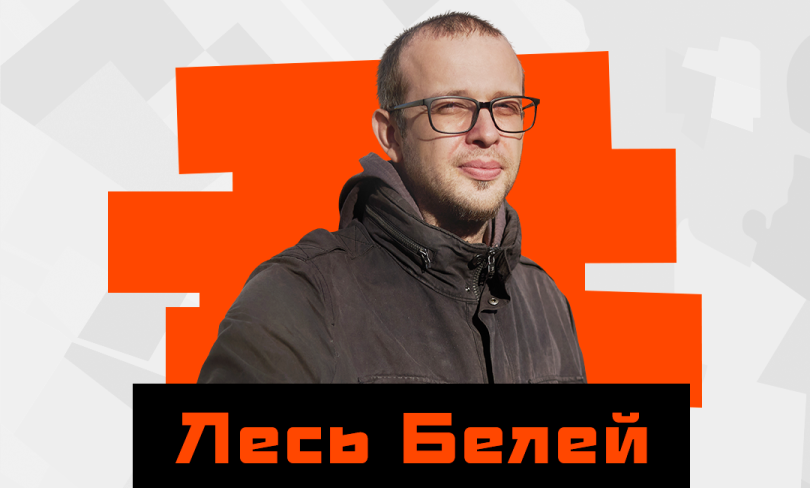State of War
My generation grew up in the nineties and did not experience war. Our society respected World War II veterans; some of us had relatives who fought in Afghanistan, but we did not have a practical understanding of war. Our knowledge of it came mainly from stories told by family members, rough-looking Soviet monuments, history lessons, books, and movies, especially action movies where one superhero could defeat entire armies. However, since 2014, and even more so since 2022, we have all gained a practical understanding of war, even those who previously tried to ignore it.
But is there something extraordinary about war that sets it apart from peacetime? Murder, mutilation, explosions, atrocities, rape, theft, betrayal, fear, heroism, self-sacrifice, and selfless help also exist in peacetime. The difference lies in concentration. As my friend in the Special Forces says, war is the simultaneous violation of the entire criminal code. I would expand this definition further: war is the simultaneous manifestation of all aspects of human existence. Of course, death holds a special place in war.
Death in war differs from death in peacetime in that it becomes more predictable, losing its mystique and element of surprise. During times of peace, people go about their daily routines, and death occasionally plucks one person or another, often unexpectedly, even in old age. However, in war, death takes on a regularity that is proportional to the distance from the active combat zone or strategic targets. Some individuals experience this proximity to death, while others do not. Unfortunately, neither super-special forces training nor super-armored vehicles can protect one from chance.
Even French journalist Frédéric Leclercq Imhoff, who was sitting in an armored car wearing a bulletproof vest and a helmet, with a first aid kit at hand, and who had presumably undergone all necessary training, was hit by a fatal shrapnel that had pierced through the armored glass and struck him in the neck. Similarly, a woman I met in Vyshhorod after a missile strike had just narrowly missed being in the exact entrance where the missile had landed. She had delayed for only a minute, almost reaching the building, when the rocket flew over her head.
There is a lot of human suffering in war, irreparable damage, and much that will take years to heal, but I will try to talk about the positive aspects, no matter how paradoxical it may sound. In all 35 years of my life, I have never seen such friendly, open, generous, and straightforward people as those who live near the hottest fighting spots or have recently experienced the horrors of occupation.
There’s the grandmother from Maryinka who lived on the front line for eight years and shared her apples with journalists from a top American publication. There’s the man from Shevchenkove, near Brovary, whose house was shelled and gutted by occupiers but who gives away his surviving birch sap from the basement. There’s Iryna Abramova, who gives a tour of a completely destroyed home in Bucha; you feel like you’re not walking on ruins but that you’ve been allowed into someone’s very private memories. There’s the grandmother from Irpin who feeds 15 cats that became homeless. There are the refugees in Kharkiv who pay for a cigarette with the story of their lives. There are the Bakhmut volunteers who unload a pickup truck full of bread brought from Dnipro amid the sounds of cannon fire and make dark jokes. And there’s the barista from Kherson who was part of the resistance movement but doesn’t brag about it, just mentions it in passing.
People who have experienced the horrors of war have learned to strip away all excess and see people for who they really are. Despite the physical and emotional traumas inflicted upon them, they have become more compassionate and humane, shedding societal conventions and artificial barriers.
So, how does modern weaponry work? What makes it so lethal? To put it simply, it’s all about speed. A small piece of metal on its own is harmless, but when it’s hurtling toward you at 900 km per hour, it can be deadly. The ability to accelerate pieces of metal to such unnaturally high speeds alters the fabric of human existence.
This altered existence creates new habits that make it challenging to transition back to peacetime. I’ll never forget the stark contrast I felt when I returned from the front line to the relative peace of Kyiv, seeing parents walking with their children in the park. Even though I was only on the front line as an observer for a short time and could leave at any moment, I couldn’t help but wonder what it must be like for those who have been fighting for months on end.
The war had a personal impact on me because it helped me understand my grandparents‘ generation better. I admit I doubted some of the stories I heard regarding Russian soldiers during World War II, like the ones about them wearing ten watches on their wrists or untwisting faucets in bathrooms and claiming they would do the same in their hometown of Mukhosransk-on-Amur to have water too, or women officers walking around town in looted nightgowns. I believed these were mere fantasies and excessive dehumanization of the enemy until I experienced the lifestyle of Russian occupiers myself and heard firsthand accounts of soldiers stealing cables for the internet.
Looking towards a post-war future, my generation will likely share the same sentiment as my grandparents‘ generation: „The main thing is for there not to be a war,“ while reliving the same flashbacks. However, I hope there will be a crucial difference: we will repeat this phrase as winners.
Translated by Yulia Lyubka and Kate Tsurkan











